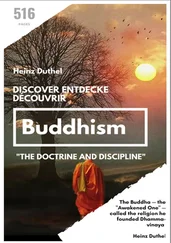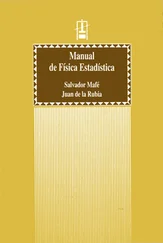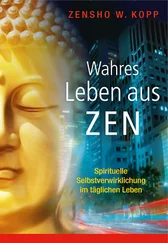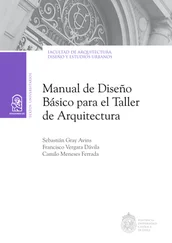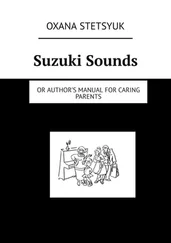Teitaro Suzuki - Manual of Zen Buddhism
Здесь есть возможность читать онлайн «Teitaro Suzuki - Manual of Zen Buddhism» весь текст электронной книги совершенно бесплатно (целиком полную версию без сокращений). В некоторых случаях можно слушать аудио, скачать через торрент в формате fb2 и присутствует краткое содержание. Жанр: Религиоведение, Религия, Руководства, на английском языке. Описание произведения, (предисловие) а так же отзывы посетителей доступны на портале библиотеки ЛибКат.
- Название:Manual of Zen Buddhism
- Автор:
- Жанр:
- Год:неизвестен
- ISBN:нет данных
- Рейтинг книги:3 / 5. Голосов: 1
-
Избранное:Добавить в избранное
- Отзывы:
-
Ваша оценка:
- 60
- 1
- 2
- 3
- 4
- 5
Manual of Zen Buddhism: краткое содержание, описание и аннотация
Предлагаем к чтению аннотацию, описание, краткое содержание или предисловие (зависит от того, что написал сам автор книги «Manual of Zen Buddhism»). Если вы не нашли необходимую информацию о книге — напишите в комментариях, мы постараемся отыскать её.
Manual of Zen Buddhism — читать онлайн бесплатно полную книгу (весь текст) целиком
Ниже представлен текст книги, разбитый по страницам. Система сохранения места последней прочитанной страницы, позволяет с удобством читать онлайн бесплатно книгу «Manual of Zen Buddhism», без необходимости каждый раз заново искать на чём Вы остановились. Поставьте закладку, и сможете в любой момент перейти на страницу, на которой закончили чтение.
Интервал:
Закладка:
III. DHARANI OF THE VICTORIOUS BUDDHA-CROWN
Adoration to the Blessed One who is the most excellent one in the triple world!
Adoration to the Enlightened One, to the Blessed One!
Namely:
Om! Cleanse [us], cleanse [us]! O one who is always impartial! One who, being in possession of all-pervading, all-illuminating light, is pure in his self-nature, cleansed of the darkness of the five paths of existence!
Baptize us, O Sugata, with an immortal baptism which consists of the best words, of the great true phrases!
Remove disasters, remove disasters, O one who holds an eternal life!
Cleanse us, cleanse us, O one who is as pure as the sky!
O one who is as pure as the victorious Buddha-crown!
O one who is inflamed with a thousand rays of light!
O all the Tathagatas who look over [the entire world]!
O one who is perfect in the Six Paramitas!
O one who holds the great seal empowered with the spiritual power which emanates from the heart of every Tathagata!
O one whose body is as hard and pure as Vajra!
O one who is thoroughly pure, cleansed of all impediments, all fears, and all the evil paths!
Turn us away [from evils] O one who enjoys a purified life!
O one who empowers us with [the power of] the original covenant! O jewel, jewel, the great jewel! O Suchness which is reality-limit and absolute purity!
O one who is pure in his evolved enlightenment!
Be victorious, be victorious, be ever victorious, be ever victorious!
Bear in mind, bear in mind!
O one who is pure being empowered by all Buddhas!
O Vajragarbha who holds the Vajra! Let my body be like Vajra! Let those of all beings too be like Vajra!
O one who is in possession of an absolutely pure body! O one who is absolutely pure from all the paths of existence! And let me be consoled by all the Tathagatas!
O one who is empowered with the consoling power of all the Tathagatas!
Be enlightened, be enlightened, be ever enlightened, be ever enlightened!
Have them enlightened, have them enlightened, have them ever enlightened, have them ever enlightened!
O one who is most pure in a most thoroughgoing way!
O one who holds a great seal empowered with the spiritual power which emanates from the heart of every Tathagata!
Hail!
III. THE SUTRAS
The sutras most read in Zen are the Shingyo ( Prajnaparamitahridaya ), the Kwannongyo ( Samantamukha-parivarta ), and the Kongokyo ( Vajracchedika ). The Shingyo being the shortest is read on almost all occasions. The Ryoga ( Lankavatara ) is historically significant, but being difficult to understand is very little studied nowadays by followers of Zen. For further information see the author's works on the sutra. The Ryogon ( Suramgama ) is not so neglected as the Ryoga. It is full of deep thoughts, and was studied very much more in China than in Japan. There are some more sutras of the Mahayana school with which Zen students will do well to become better acquainted, for example, the Kongosammaikyo ( Vajrasamadhi ), the Yengakukyo (Sutra of Perfect Enlightenment), the Yuimakyo ( Vimalakirti-sutra ), and the Hannyakyo ( Prajnaparamita ). None of them have been translated into English, except the Yuima which is difficult to obtain now.
I. ENGLISH TRANSLATION OF THE SHINGYO
When [1]the Bodhisattva Avalokitesvara was engaged in the practice of the deep Prajnaparamita, he perceived that there are the five Skandhas; [2]and these he saw in their self-nature to be empty. [3]
“O Sariputra, form is here emptiness, [4]emptiness is form; form is no other than emptiness, emptiness is no other than form; that which is form is emptiness, that which is emptiness is form. The same can be said of sensation, thought, confection, and consciousness.
“O Sariputra, all things here are characterized with emptiness: they are not born, they are not annihilated; they are not tainted, they are not immaculate; they do not increase, they do not decrease. Therefore, O Sariputra, in emptiness there is no form, no sensation, no thought, no confection, no consciousness; no eye, [5]ear, nose, tongue, body, mind; no form, [6]sound, colour, taste, touch, objects; no Dhatu of vision, [7]till we come to [8]no Dhatu of consciousness; there is no knowledge, no ignorance, [9]till we come to there is no old age and death, no extinction of old age and death; there is no suffering, [10]no accumulation, no annihilation, no path; there is no knowledge, no attainment, [and] no realization, [11]because there is no attainment. In the mind of the Bodhisattva who dwells depending on the Prajnaparamita there are no obstacles; [12]and, going beyond the perverted views, he reaches final Nirvana. All the Buddhas of the past, present, and future, depending on the Prajnaparamita, attain to the highest perfect enlightenment.
“Therefore, one ought to know that the Prajnaparamita is the great Mantram, the Mantram of great wisdom, the highest Mantram, the peerless Mantram, which is capable of allaying all pain; it is truth because it is not falsehood: this is the Mantram proclaimed in the Prajnaparamita . It runs: ‘Gate, gate, Paragate, parasamgate, bodhi, svaha!’ (O Bodhi, gone, gone, gone to the other shore, landed at the other shore, Svaha!)”
II. THE KWANNON SUTRA [1]
At that time Mujinni [2]Bosatsu rose from his seat, and, baring his right shoulder, turned, with his hands folded, towards the Buddha, and said this: World-honoured One, for what reason is Kwanzeon Bosatsu so named?
The Buddha said to Mujinni Bosatsu: Good man, when those innumerable numbers of beings—hundred-thousands of myriads of kotis of them—who are suffering all kinds of annoyances, hearing of this Kwanzeon Bosatsu, will utter his name with singleness of mind, they will instantly hear his voice and be released.
Even when people fall into a great fire, if they hold the name of Kwanzeon Bosatsu, the fire will not scorch them because of the spiritual power of this Bosatsu. When they are tossed up and down in the surging waves, if they pronounce his name they will get into a shallower place.
When hundred-thousands of myriads of kotis of people go out into the great ocean in order to seek such treasures as gold, silver, lapis lazuli, conch shells, cornelian, coral, amber, pearls, and other precious stones, their boats may be wrecked by black storms, and they may find themselves thrown up into the island of the Rakshasas; if among them there is even a single person who will utter the name of Kwanzeon Bosatsu all the people will be released from the disaster [which is likely to befall them at the hand] of the Rakshasas. For this reason the Bosatsu is called Kwanzeon.
When, again, a man is about to suffer an injury, if he will utter the name of Kwanzeon Bosatsu, the sword or the stick that is held [by the executioner] will be at once broken to pieces and the man be released.
When all the Yakshas and Rakshasas filling the three thousand chiliocosms come and annoy a man, they may hear him utter the name of Kwanzeon Bosatsu, and no wicked spirits will dare look at him with their evil eyes, much less inflict injuries on him.
When again a man, whether guilty or innocent, finds himself bound in chains or held with manacles, he uttering the name of Kwanzeon Bosatsu will see all these broken to pieces and be released.
When all the lands in the three thousand chiliocosms are filled with enemies, a merchant and his caravan loaded with precious treasures may travel through the dangerous passes. One of the company will say to the others: “O good men, have no fear; only with singleness of thought utter the name of Kwanzeon Bosatsu. As this Bosatsu gives us fearlessness, utter his name and you will be delivered from your enemies.” Hearing this, all the company join in the recitation, saying, “Kwanzeon Bosatsu be adored!” Because of this uttering the name of the Bosatsu they will be released. O Mujinni, such is the awe-inspiring spiritual power of Kwanzeon Bosatsu Makasatsu.
Читать дальшеИнтервал:
Закладка:
Похожие книги на «Manual of Zen Buddhism»
Представляем Вашему вниманию похожие книги на «Manual of Zen Buddhism» списком для выбора. Мы отобрали схожую по названию и смыслу литературу в надежде предоставить читателям больше вариантов отыскать новые, интересные, ещё непрочитанные произведения.
Обсуждение, отзывы о книге «Manual of Zen Buddhism» и просто собственные мнения читателей. Оставьте ваши комментарии, напишите, что Вы думаете о произведении, его смысле или главных героях. Укажите что конкретно понравилось, а что нет, и почему Вы так считаете.



